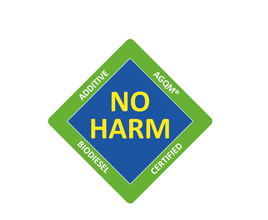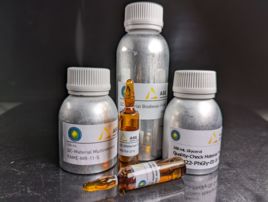Passenger cars are safe to use with B10 fuel – if a suitable regeneration strategy is applied
Modern cars can run on B10 fuel, i.e., fuel containing 10 per cent by volume biodiesel, under certain conditions. So far, suppliers have only released B7 fuel (7% admixture). This is the result of fleet tests organized by the Association of the German Bio Fuel Industry (VDB) with assistance of the Union for the Advancement of Oil and Protein Crops (UFOP).
Passenger cars and light commercial vehicles of emission level Euro-4 or higher can use fuel with 7 per cent biodiesel (B7). The reason is not any incompatibility of materials or combustion in the engine but the regeneration of the carbon particulate filter. According to reports from the automotive industry, intolerable thinning of the engine oil due to the biodiesel was observed during retarded injection in engines for regeneration of the filter.
The results of the VDB fleet tests now present a different picture: Generally, considerable thinning of the engine oil in engines running on B10 fuel occurred only in cases in which the vehicles were exclusively driven short distances; drives on national roads and highways reduced this effect substantially. As a result of the examinations, significant differences were found among different regeneration strategies applied by the vehicle manufacturers: Cars which use an additional liquid catalyst (cerium/ferrocene based) for internal injection in the engine fared substantially better than similar cars relying only on retarded injection. The liquid catalyst reduces the combustion temperature of the carbon particulate with the result that this system needs less fuel for regeneration; consequently, the thinning of the engine oil is dramatically lower. The tests showed that the higher admixture of biodiesel (B10) is tolerated if the vehicle is equipped with suitable filter regeneration equipment. Similar results are reported for a project organized by the Institute for Mobile Systems (ims) of Otto von Guericke University Magdeburg at about the same time. Designed as test bench experiment, the thinning of the engine oil due to B10 was studied under defined load profiles. The project was funded by Fachagentur Nachwachsende Rohstoffe e.V. (FNR) and UFOP. Based on the results on hand, further tests with another regeneration system will be undertaken on the initiative of UFOP, in which the fuel will not be injected in the engine but directly upstream the oxidation catalyst. This could eliminate the engine oil thinning effect, by and large.
Explanation:
Diesel particulate filter (DPF) in cars and light commercial vehicles need active regeneration to oxidize the carbon particulate during normal operation of the vehicle. In many cases, however, the exhaust temperature is not sufficiently high despite the catalytic coating of the filter material, and therefore fuel is injected after the actual combustion process. As a consequence of this retarded injection in the engine more fuel enters the engine oil. Due to the higher boiling characteristics this can become critical under certain conditions when biodiesel is the fuel.





